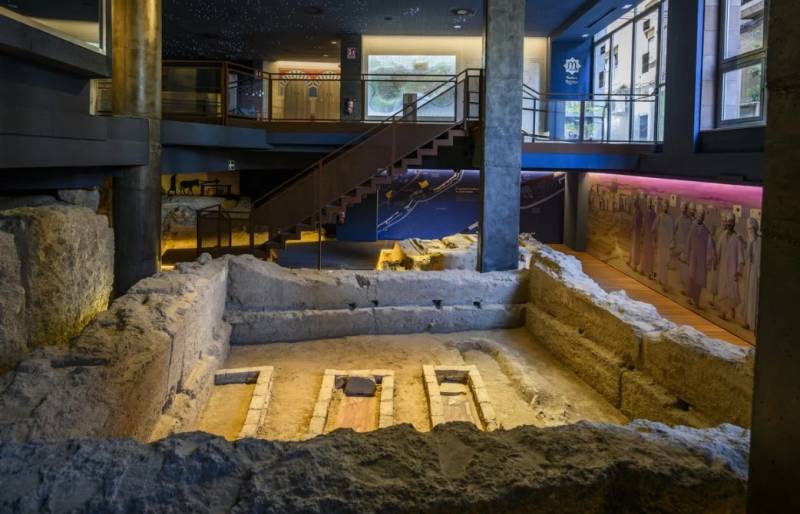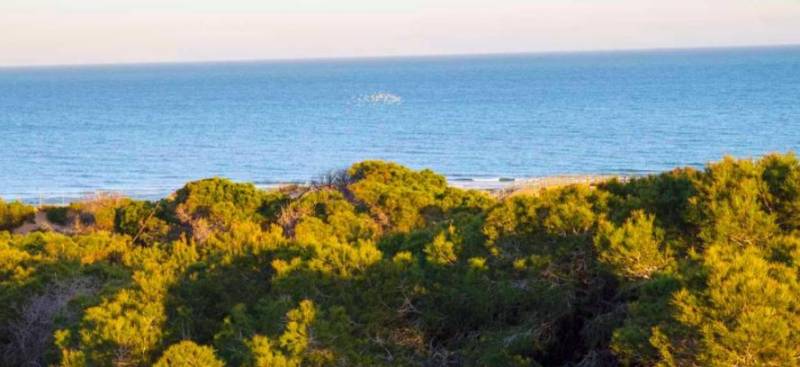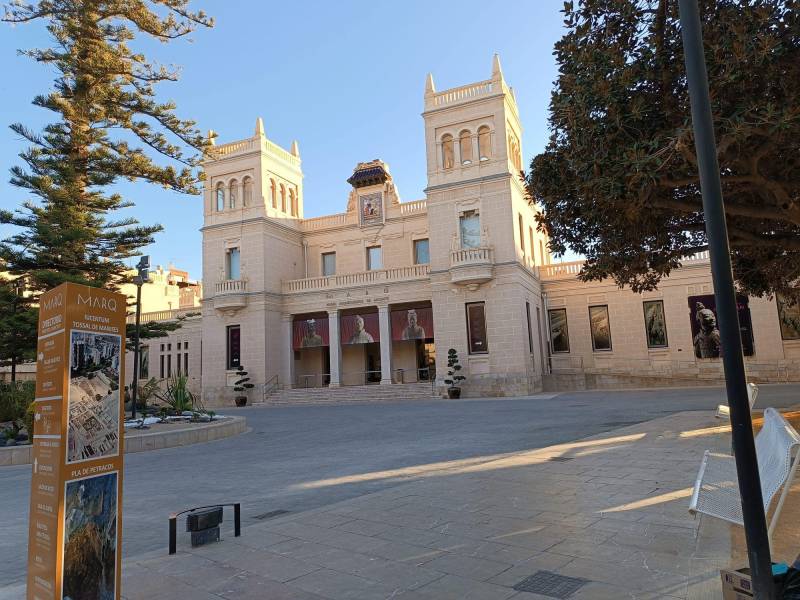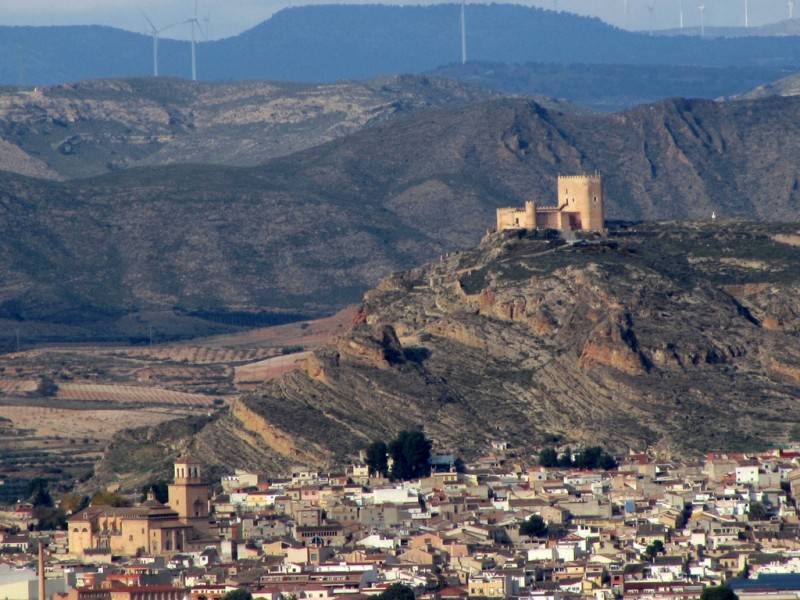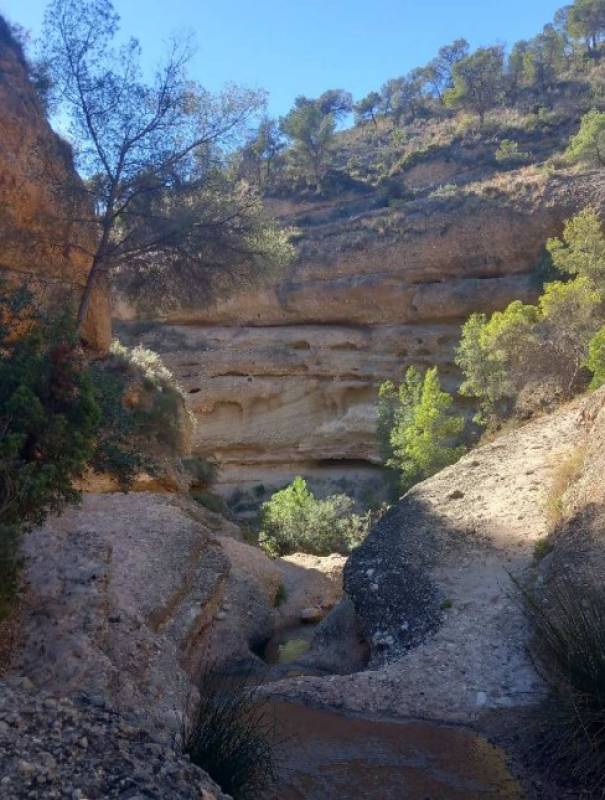- Region
- Vega baja
- Marina Alta
- Marina Baixa
- Alicante
- Baix Vinalopo
- Alto & Mitja Vinalopo
-
ALL TOWNS
- ALICANTE TOWNS
- Albatera
- Alfaz Del Pi
- Alicante City
- Alcoy
- Almoradi
- Benitatxell
- Bigastro
- Benferri
- Benidorm
- Calosa de Segura
- Calpe
- Catral
- Costa Blanca
- Cox
- Daya Vieja
- Denia
- Elche
- Elda
- Granja de Rocamora
- Guardamar del Segura
- Jacarilla
- Los Montesinos
- Orihuela
- Pedreguer
- Pilar de Horadada
- Playa Flamenca
- Quesada
- Rafal
- Redovan
- Rojales
- San Isidro
- Torrevieja
- Comunidad Valenciana
article_detail
Date Published: 19/01/2023
10 incredible and unforgettable places to visit in Alicante province
From impressive caves to stunning salt lakes, there's more to Alicante province than its coastline
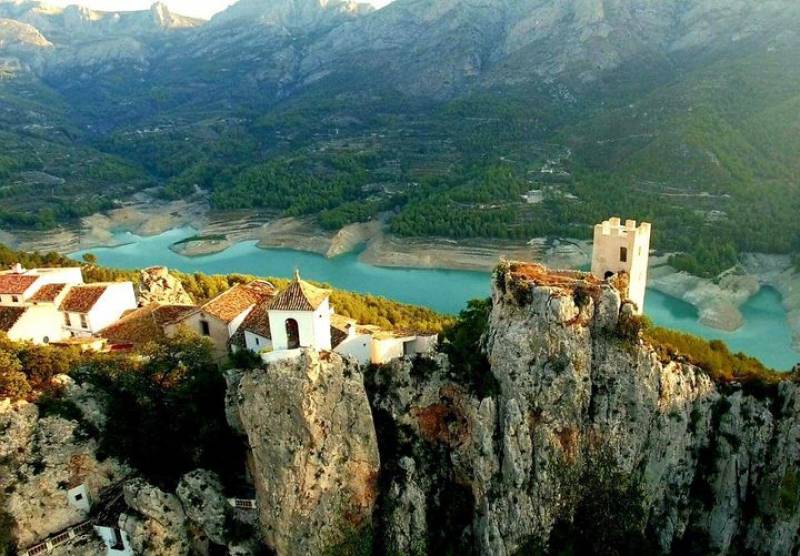
Alicante province has been alluring tourists worldwide for decades with its cultural heritage, colourful festivals and picturesque coastline and countryside.
A jewel in the Costa Blanca's crown, the province is literally a mecca for beach, sport, cuisine and nature lovers.
With so much to see, we've put together a list of 10 incredible and unforgettable places to visit, and where necessary, tips on how to get there:
1. Coves de Canelobre, Busot (Canelobre Caves)
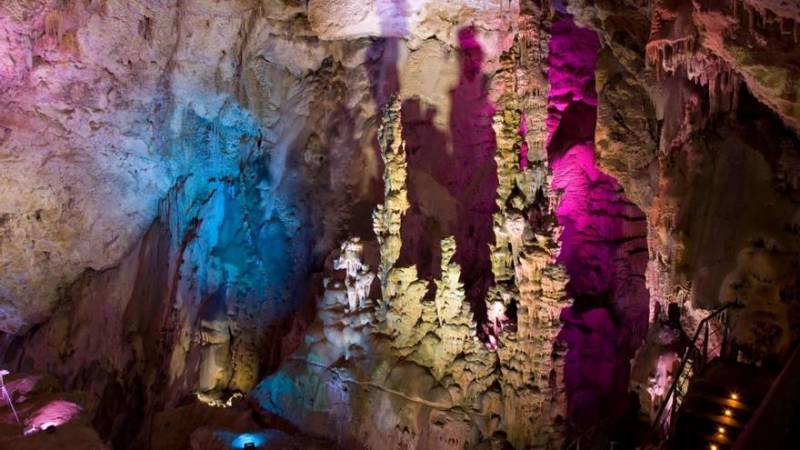 These caves are located 4.7 km from Bisot urban centre at an altitude of 700 metres on the slopes of the Cabeçó D'Or, one of the few Jurassic reliefs of the Prebetic in the province. The cavity develops in the Upper Jurassic limestones, which are 145 million years old. This Jurassic core is flanked by more modern Cretaceous materials and, in turn, by Tertiary marls and limestones. During the Quaternary, the runars that fall down its steep slopes were formed.
These caves are located 4.7 km from Bisot urban centre at an altitude of 700 metres on the slopes of the Cabeçó D'Or, one of the few Jurassic reliefs of the Prebetic in the province. The cavity develops in the Upper Jurassic limestones, which are 145 million years old. This Jurassic core is flanked by more modern Cretaceous materials and, in turn, by Tertiary marls and limestones. During the Quaternary, the runars that fall down its steep slopes were formed.Inside the caves there is a space of more than 80,000 m2, which can be accessed through a 45-metre tunnel. There, visitors can see one of the highest vaults in Spain, at a height of 70 metres, and see how the water and the rock have given rise to impressive shapes such as stalagmites, columns, organs, candelabras, lava flows, microgours and jellyfish.
How to get there
Travel from Alicante to Busot and from there on to the Cuevas de Canelobre. Before a bend that takes a sharp turn to the right, near the caves, there is a car park.
2. Guadalest
 Guadalest is located in the Guadalest Valley and boasts a unique charm. In fact, it features in the National Geographic's list of the most beautiful places in Spain 2023. You can't miss its reservoir, surrounded by a beautiful landscape with outstanding views, or the castle of San José, perched on a rock at the top.
Guadalest is located in the Guadalest Valley and boasts a unique charm. In fact, it features in the National Geographic's list of the most beautiful places in Spain 2023. You can't miss its reservoir, surrounded by a beautiful landscape with outstanding views, or the castle of San José, perched on a rock at the top.Visitors can stroll through its streets, full of shops, craft markets and small bars or just admire the impressive views.
How to get there
To get there from Benidorm, take the CV-70 at La Nucía or Polop, or the CV-755 at Altea.
3. Barranco de la Encantada, Planes (La Encantada ravine)
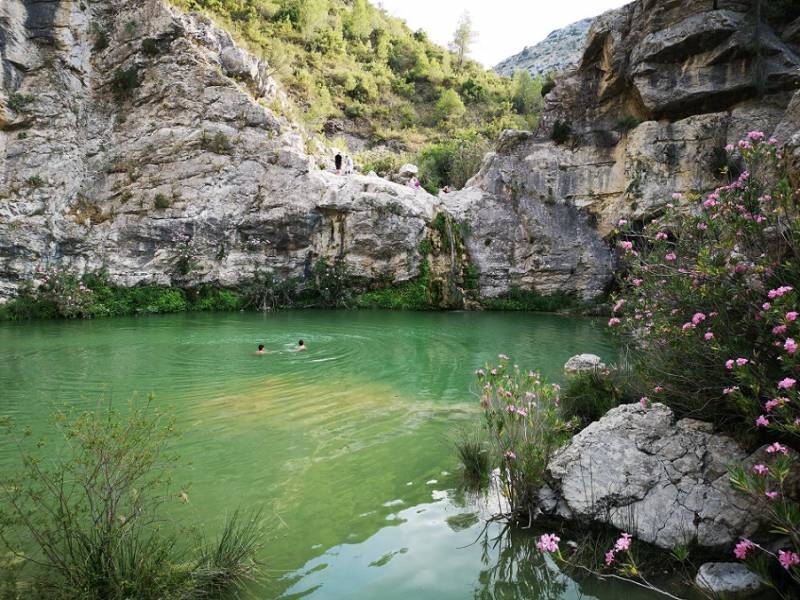 Few destinations combine as many charms in such a short distance as a tour around Planes, in the Vall de Gallinera, known as the valley of the cherry trees. There are a number of excursions to find out more about it, including the Way of the Cross that takes visitors from the village to the Chapel of Santo Cristo, through the cherry and almond tree fields. And it's well worth following the path of the Barranco de la Encantada ravine with its waterfall and the path that slides over its encased bed.
Few destinations combine as many charms in such a short distance as a tour around Planes, in the Vall de Gallinera, known as the valley of the cherry trees. There are a number of excursions to find out more about it, including the Way of the Cross that takes visitors from the village to the Chapel of Santo Cristo, through the cherry and almond tree fields. And it's well worth following the path of the Barranco de la Encantada ravine with its waterfall and the path that slides over its encased bed.How to get there
To reach the old quarter of Planes, where orgaised excursions begin, take the CV 700 from Muro de Alcoy or from Pego.
4. Nacimiento del Río Vinalopó, Banyeres de Mariola (Source of the River Vinalopó)
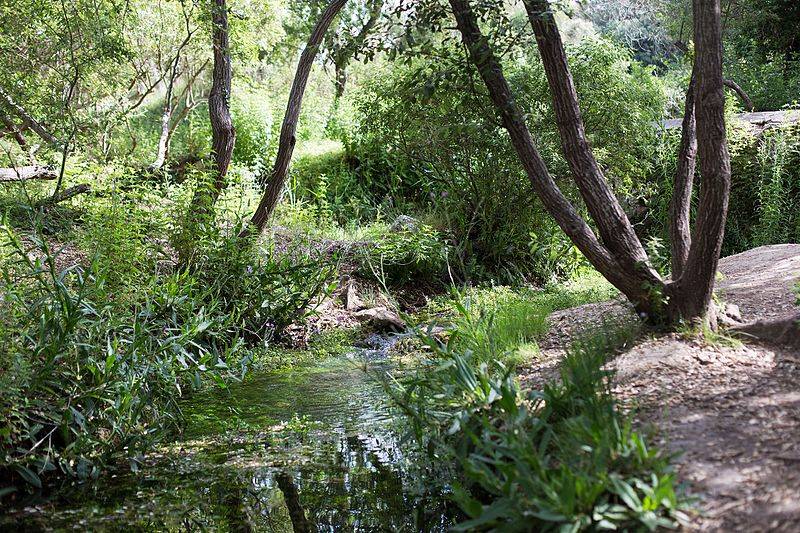 This municipality is actually the highest in Alicante province. In the vicinity of the town, the Mariola mountain range is a very important environmental enclave, with several springs that give rise to the Vinalopó river.
This municipality is actually the highest in Alicante province. In the vicinity of the town, the Mariola mountain range is a very important environmental enclave, with several springs that give rise to the Vinalopó river.How to get there
From Banyeres de Mariola, take the CV-795 road from Alcoy to Banyeres until you reach the Sierra Mariola Natural Park Interpretation Centre, located in the Ulls de Canals farmhouse, next to which there is a public park.
5. Parque Natural de las lagunas de Torrevieja y la Mata
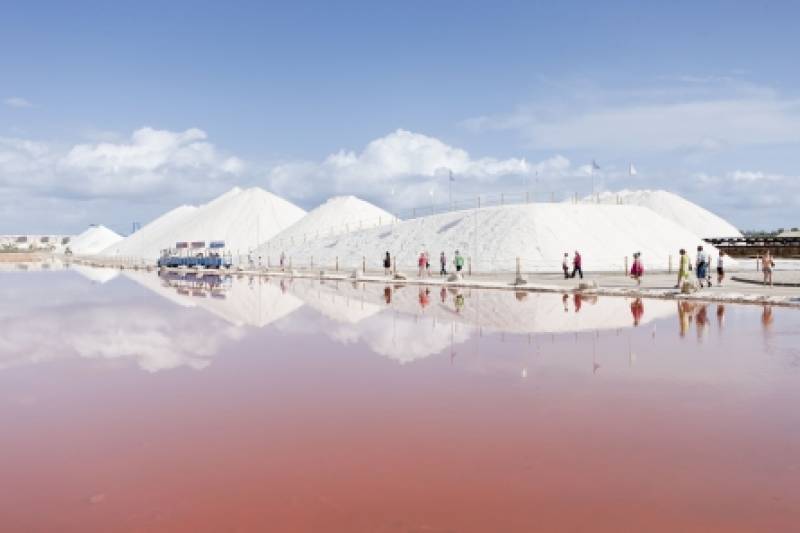 The breathtaking Torrevieja lagoon, which covers an area of 1,400 hectares, is the largest, while La Mata, located 1.5km to the north, has an area of 700 hectares. They are separated by the Chaparral and connected by an artificial channel known as the Acequión, which was built for the exploitation of the Torrevieja salt mines.
The breathtaking Torrevieja lagoon, which covers an area of 1,400 hectares, is the largest, while La Mata, located 1.5km to the north, has an area of 700 hectares. They are separated by the Chaparral and connected by an artificial channel known as the Acequión, which was built for the exploitation of the Torrevieja salt mines.There are regular tours and a salt lake train that enables visitors to truly experience the enormity and beauty of the lagoons and spot the feathered stars of the show - flamingo and black-necked grebe.
How to get here
From the N-332 road, take the turn-off at Torrelamata.
6. Fuentes del Algar, Callosa d'en Sarrià (Algar Springs)
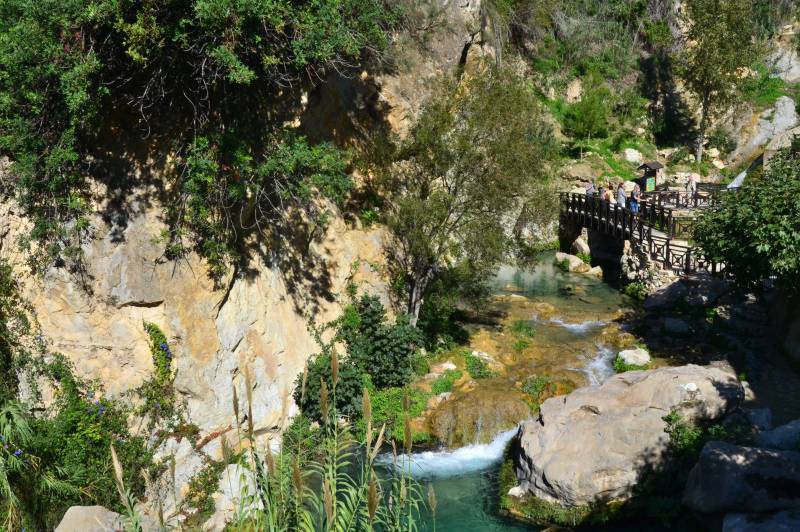 The Fuentes del Algar, located just 15 km from Benidorm and 3 km from the town centre of Callosa d'en Sarrià, are a natural area of great ecological wealth, and have been declared a Protected Wetland Area. There's a 1.5 km long circuit along the course of the river Algar with stunning views of the landscape, the waterfalls, the springs that emerge from the rock and the natural pools where water "heals the body and soul".
The Fuentes del Algar, located just 15 km from Benidorm and 3 km from the town centre of Callosa d'en Sarrià, are a natural area of great ecological wealth, and have been declared a Protected Wetland Area. There's a 1.5 km long circuit along the course of the river Algar with stunning views of the landscape, the waterfalls, the springs that emerge from the rock and the natural pools where water "heals the body and soul".How to get there
Reach Callosa d'en Sarrià via the CV-755, then take the CV-715 towards Bolulla and Tárbena and the turn-off to the Fuentes del Algar where there are car parks.
7. Orihuela
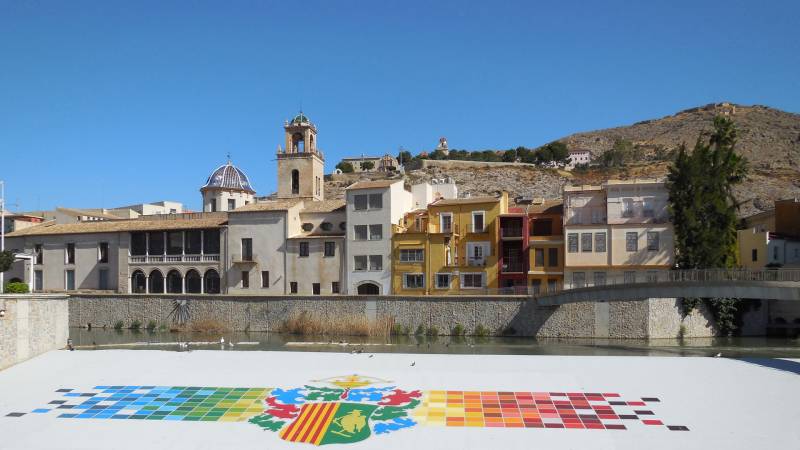 Orihuela is home to gems of historic Mediterranean architecture and has a wide variety of museums and palaces. A number of places and buildings are classified as Assets of Cultural Interest (BIC) such as El Palmeral, the Circo Theatre, the Diocesan Museum of Sacred Art or the House Museum of Miguel Hernández, who was born in Orihuela.
Orihuela is home to gems of historic Mediterranean architecture and has a wide variety of museums and palaces. A number of places and buildings are classified as Assets of Cultural Interest (BIC) such as El Palmeral, the Circo Theatre, the Diocesan Museum of Sacred Art or the House Museum of Miguel Hernández, who was born in Orihuela.The castle can also be visited and large sections of its walls are preserved, including remains of the keep and some defensive towers, rafts and dungeons, as well the queen's bath area.
8. Barrio de Santa Cruz, Alicante (Santa Cruz quarter)
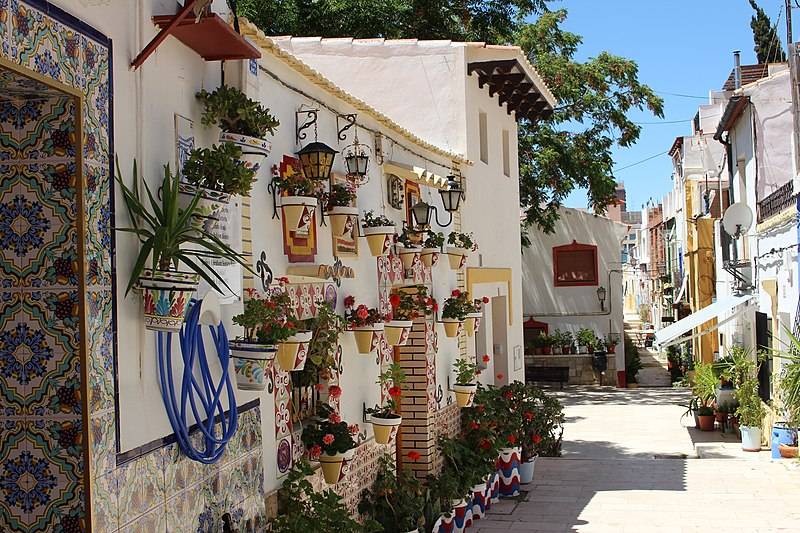 This area is considered a "typical reflection of Alicante". Visitors can walk through its delightful streets lined with colourful little houses and flowers. However, be prepared, there are plenty of steep streets with lots of stairs, although on the plus side, this offers unforgettable views of the city. Other attractions include the hermitage of Santa Cruz, which dates back to the 18th century.
This area is considered a "typical reflection of Alicante". Visitors can walk through its delightful streets lined with colourful little houses and flowers. However, be prepared, there are plenty of steep streets with lots of stairs, although on the plus side, this offers unforgettable views of the city. Other attractions include the hermitage of Santa Cruz, which dates back to the 18th century.9. Parque Natural de las Salinas de Santa Pola (Santa Pola Salt Flats Natural Park)
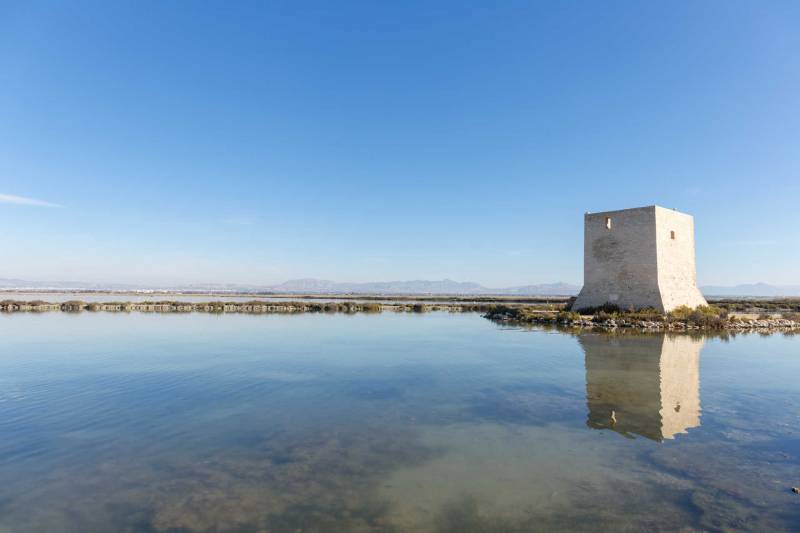 This natural park covers 2,470 hectares and is home to salt farms, freshwater ponds, an area of beaches and dunes, and farmland. The enclave has also been declared an 'Area of Special Importance for Birds'. The park boasts a Salt Museum, housed in an old salt mill, where visitors can learn about the uses of salt, its characteristics, history and consumption.
This natural park covers 2,470 hectares and is home to salt farms, freshwater ponds, an area of beaches and dunes, and farmland. The enclave has also been declared an 'Area of Special Importance for Birds'. The park boasts a Salt Museum, housed in an old salt mill, where visitors can learn about the uses of salt, its characteristics, history and consumption.How to get there
Take the N-332 road from the Salt Museum to El Pinet.
10. La Font Roja (The Red Spring)
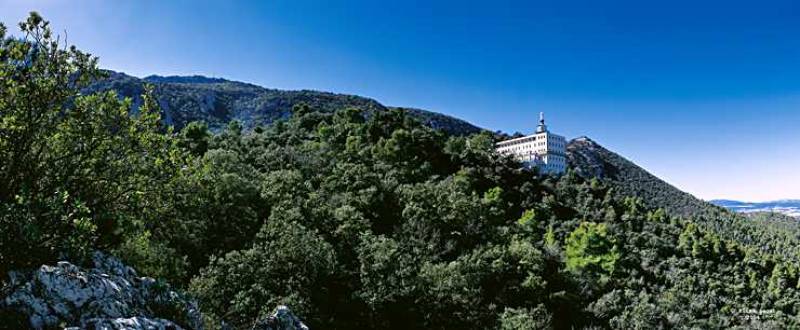 It's impossible to single out just one place to visit at the Font Roja, the whole of its surroundings are incredible. There's the sanctuary, the forest with its oak, ash and maple trees, the Cova Gelada, snow wells and staggering vistas from various viewpoints.
It's impossible to single out just one place to visit at the Font Roja, the whole of its surroundings are incredible. There's the sanctuary, the forest with its oak, ash and maple trees, the Cova Gelada, snow wells and staggering vistas from various viewpoints.How to get there
Take the Alicante exit off the N-340 and follow the AP 2001 road for 11 km to the sanctuary car park.
Image 1: Turismo Buscot
Image 2: GVA Turisme
Image 3: Valencia Bonita
Image 4: Wikimedia
Image 5: Archive
Image 6: Wikimedia
Image 7: Orihuela Turistica
Image 8: Wikimedia
Image 9: Comunitat Valenciana
Image: 10: Alcoy Tursimo
staff.inc.ali
Loading
Sign up for the Spanish News Today Editors Roundup Weekly Bulletin and get an email with all the week’s news straight to your inbox
Special offer: Subscribe now for 25% off (36.95 euros for 48 Bulletins)
OR
you can sign up to our FREE weekly roundup!
Read some of our recent bulletins:
Discount Special Offer subscription:
36.95€ for 48 Editor’s Weekly News Roundup bulletins!
Please CLICK THE BUTTON to subscribe.
(List price 3 months 12 Bulletins)
Read more stories from around Spain:
Contact Murcia Today: Editorial 000 000 000 /
Office 000 000 000










